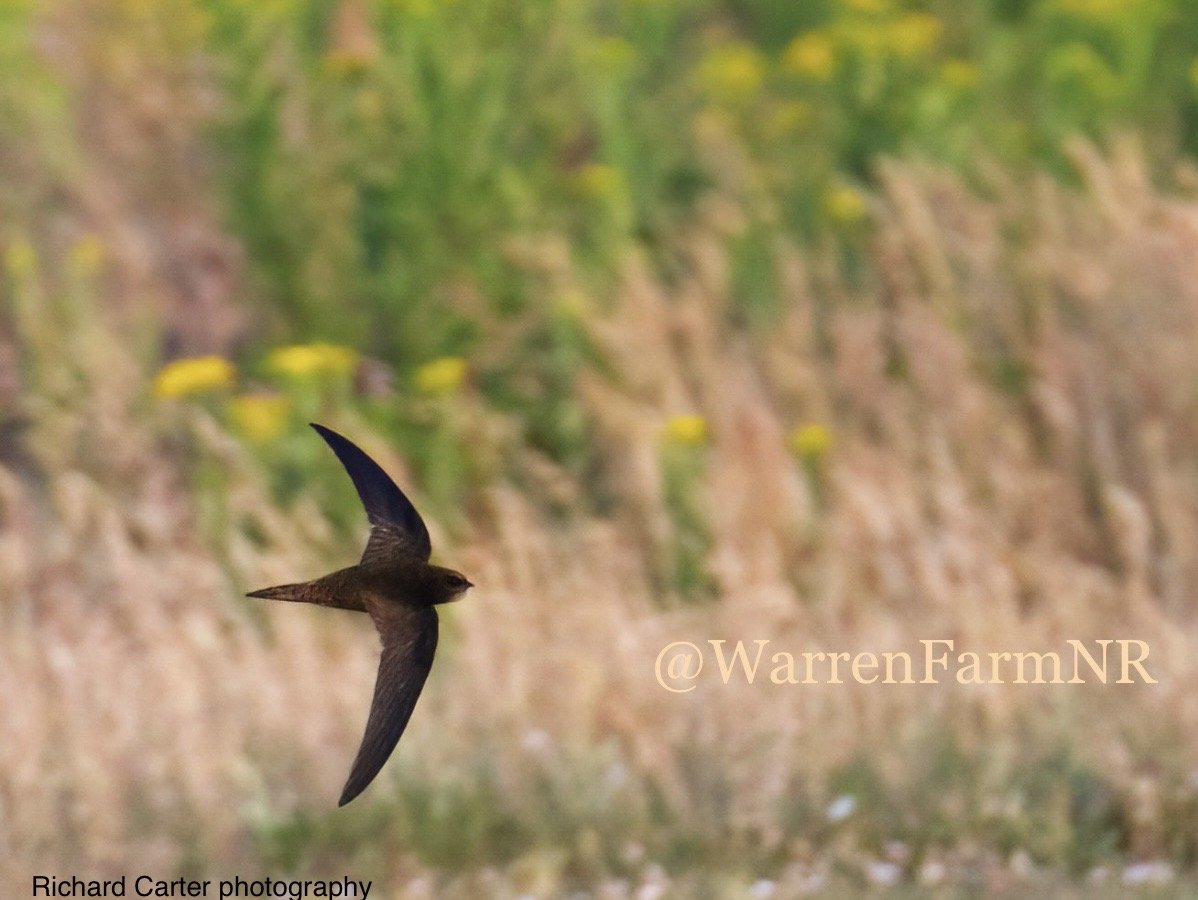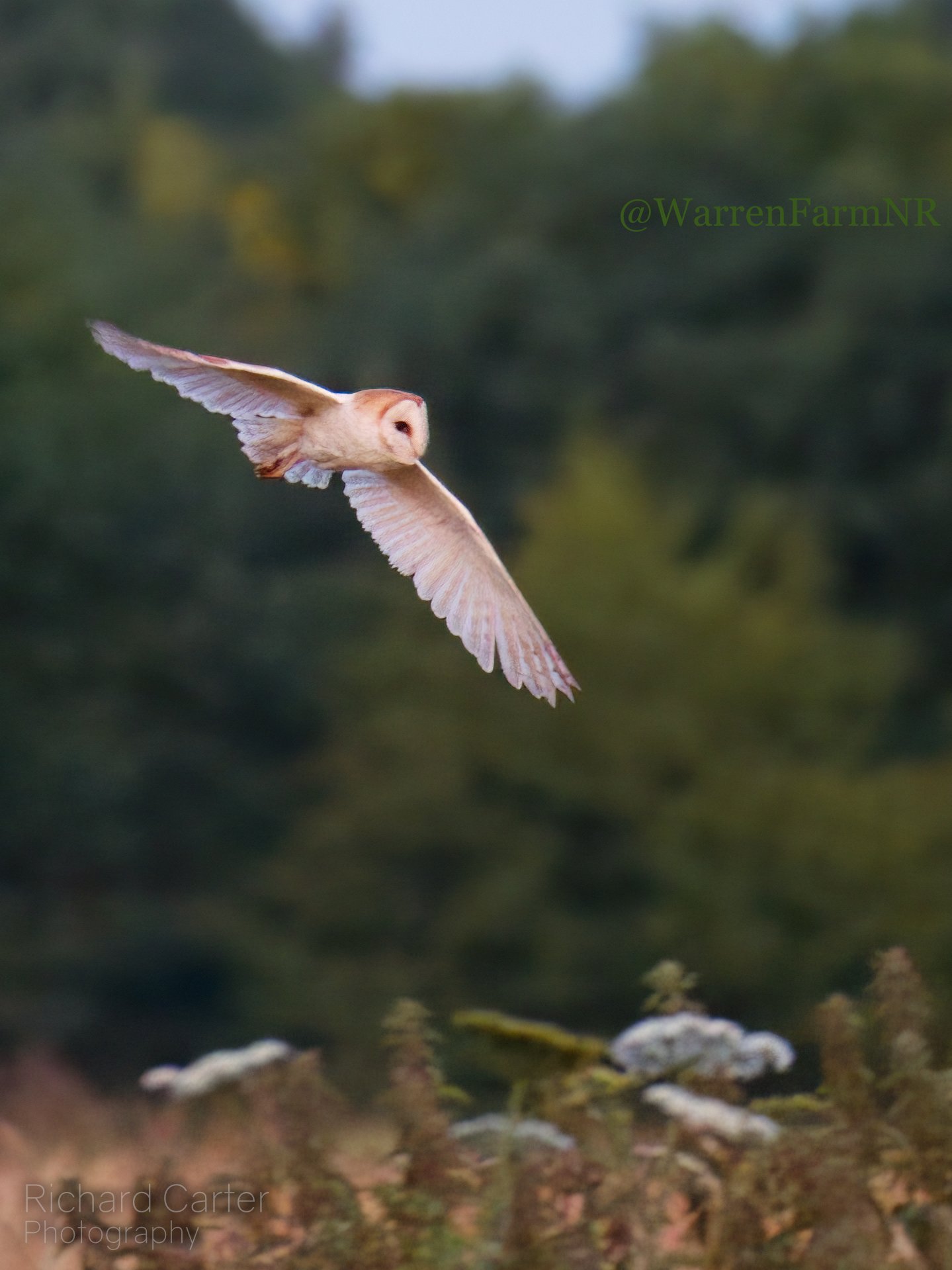Warren Farm is already a Local Nature Reserve (LNR) in everything except official designation - why are we sure that this is the case?
Because we have the facts. We have a passionate team of experts and supporters who have generously given their time and expertise to assess our land since May 2019.
Ecologists, entomologists (the study of insects), ornithologists (birds), botanists (plants) and a number of supportive nature organisations including Kew Garden’s Herbarium, the London Natural History Society (LNHS) and the Brent River & Canal Society (BRCS) to name a few, have all been involved. Together we have compiled a comprehensive set of species records that evidence Warren Farm NR is home to an astonishing abundance of common, rare and endangered wildlife, some facing UK extinction.
What wildlife have we found?
Plant species records, including rare UK red-listed Clovers and Copse Bindweed to name just one, a plant which is facing both local and UK wide extinction, with Warren Farm NR being one of only two recently recorded sites in which this vulnerable plant grows in London.
Over 100 different species of bird. These birds include UK red-listed Skylarks, Barn Owls, Little Owls, Meadow Pipits, Peregrine Falcons, House Sparrows, Starlings, Mistle Thrushes and the fantastic migrating Wryneck… To highlight just a few.
We’ve found hundreds of astonishing insects, from the Red Listed Beewolf to the Yarrow Pug and Ivy Bee, with so many more exciting finds yet to record in this area. Arachnid records include the Thanatus striatus, which was a first record for Middlesex.
Species of Bats and mammals including Field Voles, Yellow-necked Mice, Weasels, Hedgehogs; Amphibians including Common Toads, Smooth Newts; and Reptiles such as the beautiful harmless golden Slow worm.
We have ancient oak trees registered with the Woodland Trust on their Ancient Tree Inventory and species records shared with GiGL and the LNHS.
We are in a climate crisis - every green space matters.
This incredible rewilded habitat is already classified as Metropolitan Open Land (MOL) which has the same level of protection as Green Belt. Warren Farm Nature Reserve is part of the Brent River Park, also known as ‘The Lungs of London’. It is a neutral and acid grassland UK Biodiversity Action Plan (BAP) habitat, which should make our rewilded wildflower meadow a top conservation priority in the Mayor of London, The London Plan and The London Environment Strategy.
In August 2019, Warren Farm was awarded ‘Much Loved’ Park by Fields in Trust for its thriving nature, nominated by the public making our urban meadow one of the top four parks in London.
Warren Farm Nature Reserve forms part of a vital Nature Recovery Network (NRN), a wildlife corridor connecting it to Jubilee Meadow, Blackberry Corner, Trumper’s Field, and Fox Meadow (also known as St Margaret’s Open Space), as well as connecting to The Aviary, Osterley Park, The Grand Union Canal, Long Wood and beyond.
Warren Farm also has a Site of Importance for Nature Conservation (SINC) status, that runs the length of Windmill Lane, a long narrow strip of land at one end. According to the Mayor of London, SINCs must be re-assessed by local authorities regularly, with new ones considered, but Ealing Council are to date extremely behind in fulfilling this responsibility. It is considered good practice for London boroughs to review SINCs at least every 10 years and SINC reviews are generally completed in the space of 1 – 2 years. The last published Ealing SINC review (which covers all green spaces in the borough) is dated as far back as 2007. If that was not bad enough, we then made the shocking discovery that in 2017 an unpublished and buried ecology consultants report concluded that the entirety of Warren Farm NR qualified for SINC designation - we have offered to assist Ealing Council in this process and we will update you when we receive the outcome.
Still need convincing that Warren Farm Nature Reserve with LNR designation is a good idea?
Covid19 and subsequent lockdowns have collectively opened the world’s eyes to the importance of protecting and valuing our green spaces, with nature bringing us continual physical and mental health benefits, from childhood through to old age. London is the first city in the world to become a National Park City (NPC), with the Mayor of London Sadiq Khan’s ambition to make the city a greener, healthier, wilder environment.
The State of Nature report 2019 makes for depressing reading, with the UK being noted as one of the most nature depleted countries in the world, ranking 189th out of 218 countries assessed. More than 1 in 7 native UK species face extinction and more than half (56%) are in decline. Our wildlife is struggling against pollution, habitat loss, intensive farming and Climate Change. We join many notable environmental organisations and charities lobbying the government and our local MPs to strengthen environmental laws to ensure nature and our environment are given greater legal protection. Our rapidly declining UK wildlife must be given urgent priority if we stand any chance of increasing our biodiversity and health. However, in the meantime wildlife everywhere continues to suffer and decline leaving a poorer world. Every green space matters now more than ever before.
The Wildlife Trusts in October 2020 published their vision for Wildbelt of which Warren Farm Nature Reserve and the collective BRP Meadows achieve. Magnificent Meadows tell us there are only 2% of wildflower meadows left across the UK, of which we know Warren Farm Nature Reserve and surrounding BRP Meadows hugely contribute towards. Warren Farm Nature Reserve is utterly unique in its rewilding and urban setting.
Whilst we watch the Arctic ice caps melt, coral reefs disappearing before us, wildfires across Australia and many other environmental catastrophes, the UK took a strong stance in the face of a deteriorating planet by being the first country in the world to declare a Climate Emergency.
The Labour party, including Ealing Council, have stated that we must be doing more as part of a wider Green Recovery. Yet simultaneously, under the previous council leadership of Julian Bell - despite his environmental credentials - he refused to acknowledge our species records or the highly significant Biodiversity Net Gain that Warren Farm Nature Reserve brings to the borough, London and the UK as a whole. Yet he held the positions of Ealing Council Labour Leader, Chair of London Council’s Transport and Environment Committee (TEC), the TEC Executive Sub Committee 2020/2021, Vice Chair on the London Green Spaces Commission Report and member of the Green Infrastructure Task Force.
As of May 2021, formal Southall Green Councillor in Ealing Peter Mason, took over from Julian Bell as Ealing Council Leader. We have been in conversations with Peter Mason which initially were seemingly productive however, sadly after a disingenuous Public Consultation where by the results were overwhelmingly in favour of biodiversity being safeguarded at Warren Farm NR, Peter Mason and Ealing councillors voted yes to dewilding over half of our already rewilded meadow habitat, misleadingly calling this a ‘win-win’ situation when the opposite is true. The brilliant news is that in response to this highly unpopular decision to dewild our land and cause species extinction, notable wildlife organisations, charities and individuals are supporting our campaign and our petition has flown over 25,000 signatures and growing!
Nature has to be more than an afterthought, a tick-box on a developer’s application form. We believe it is time to put our environment and health first in Ealing, our campaign is just getting started and together our community and wildlife will be heard. We can and will do better. #WatchThisGreenSpace #SaveEalingSkylarks
Warren Farm’s importance as a vital green space in a time of climate emergency is beyond doubt.
Our land has more than enough common and rare species for it to be considered a Local Nature Reserve (LNR). Warren Farm Nature Reserve is already an LNR in everything but official designation. Yet without this designation we cannot offer our rewilded meadow habitat the long-term protection from future development that it deserves.
Please sign and share our petition and give a voice to nature. Thank you!








